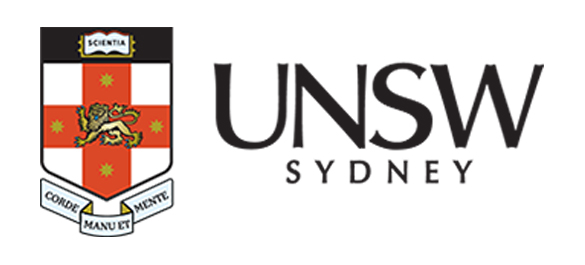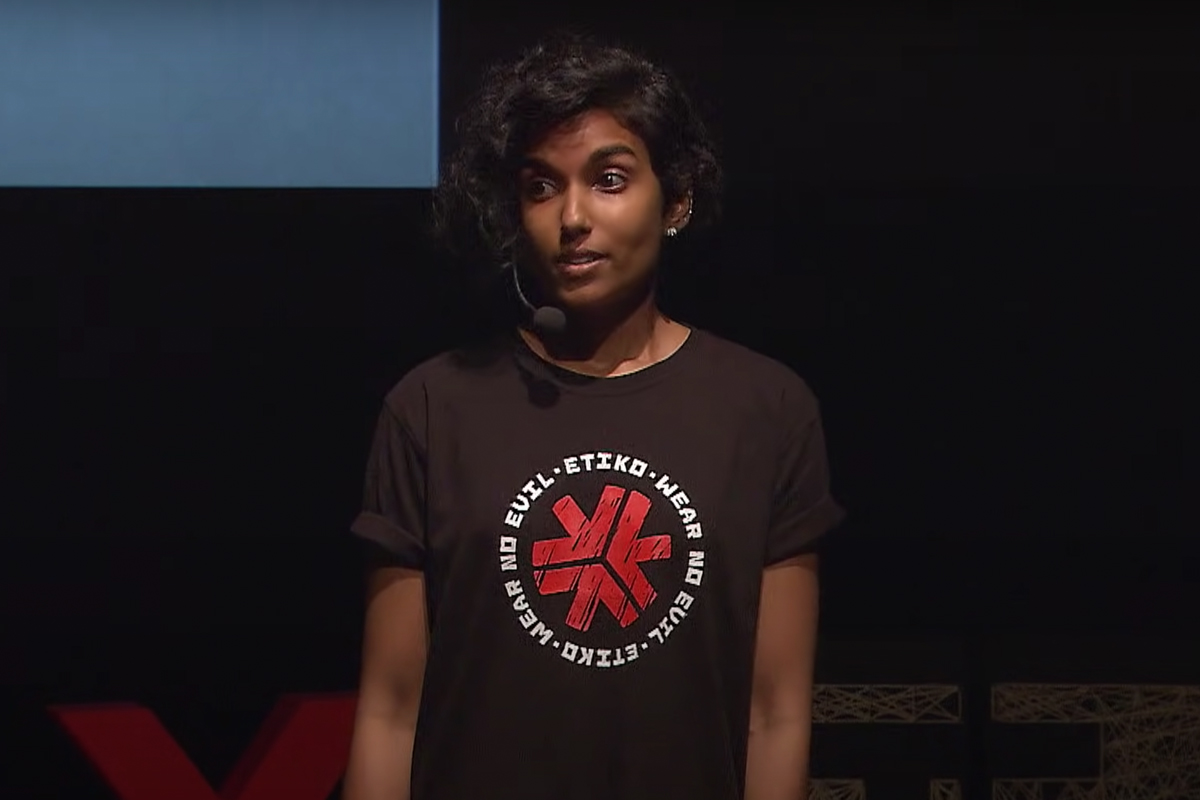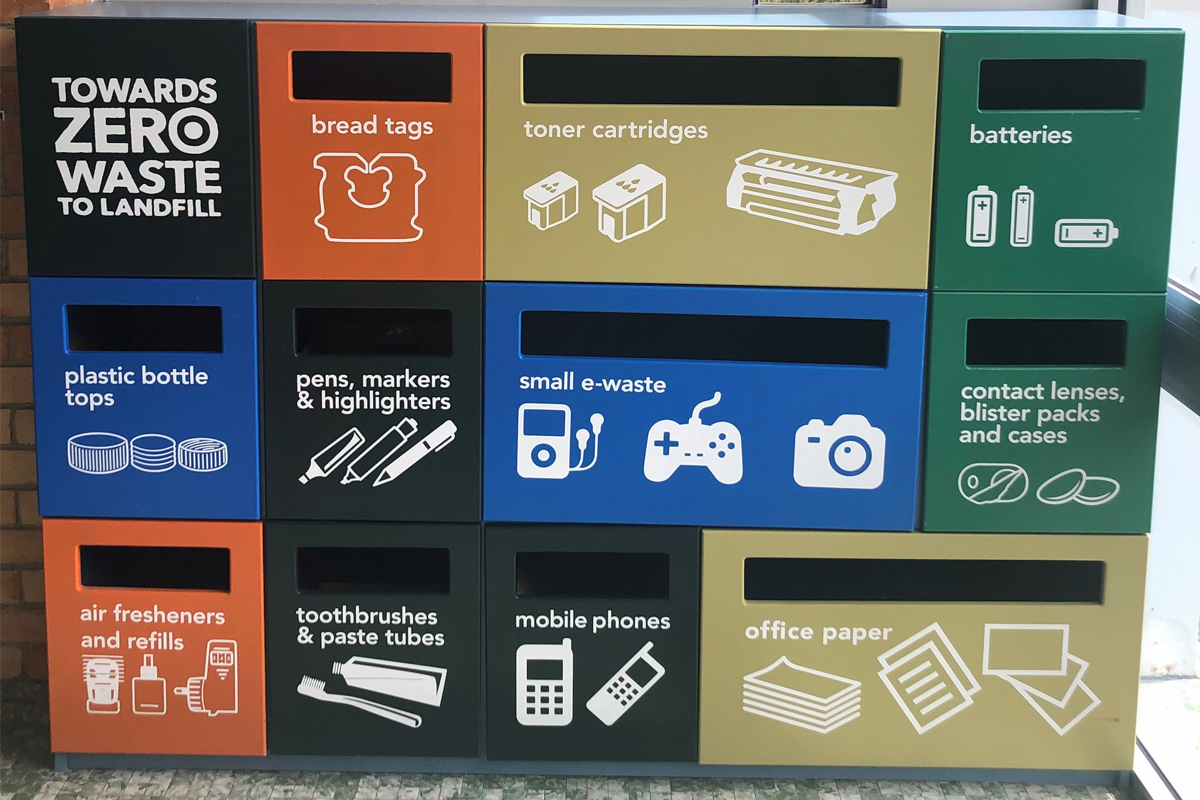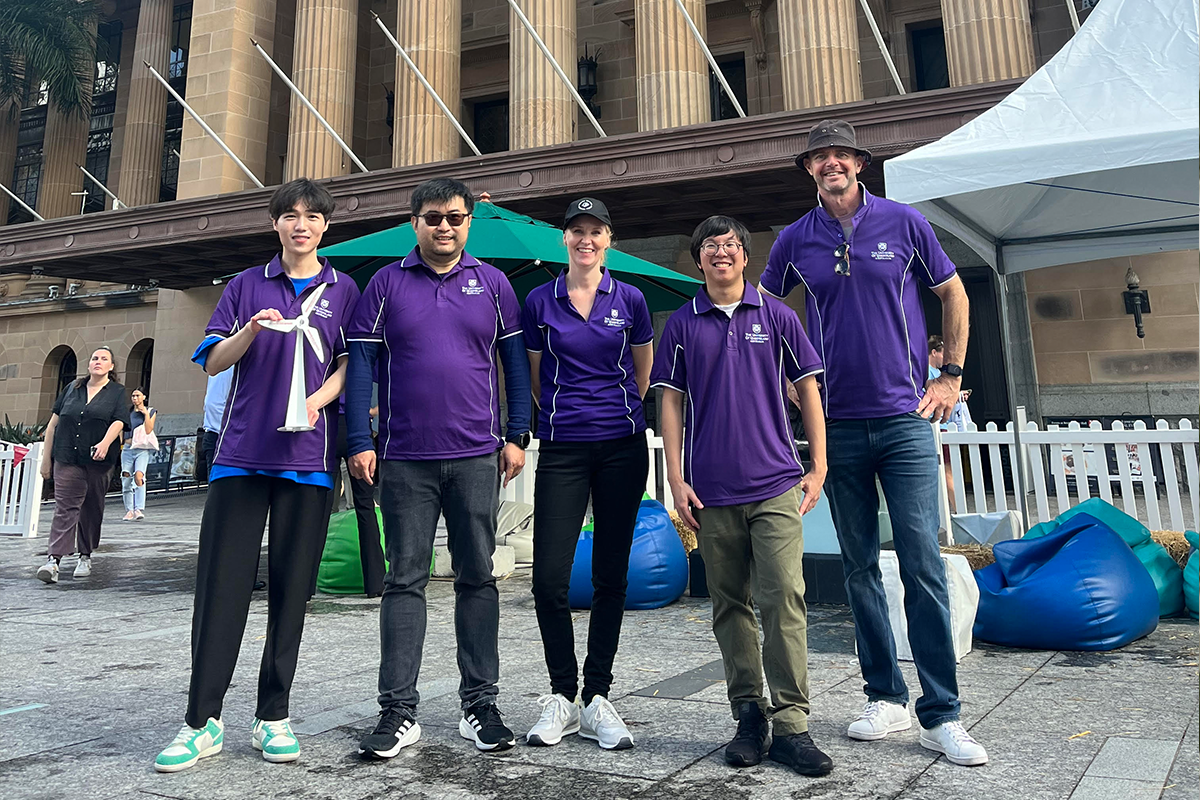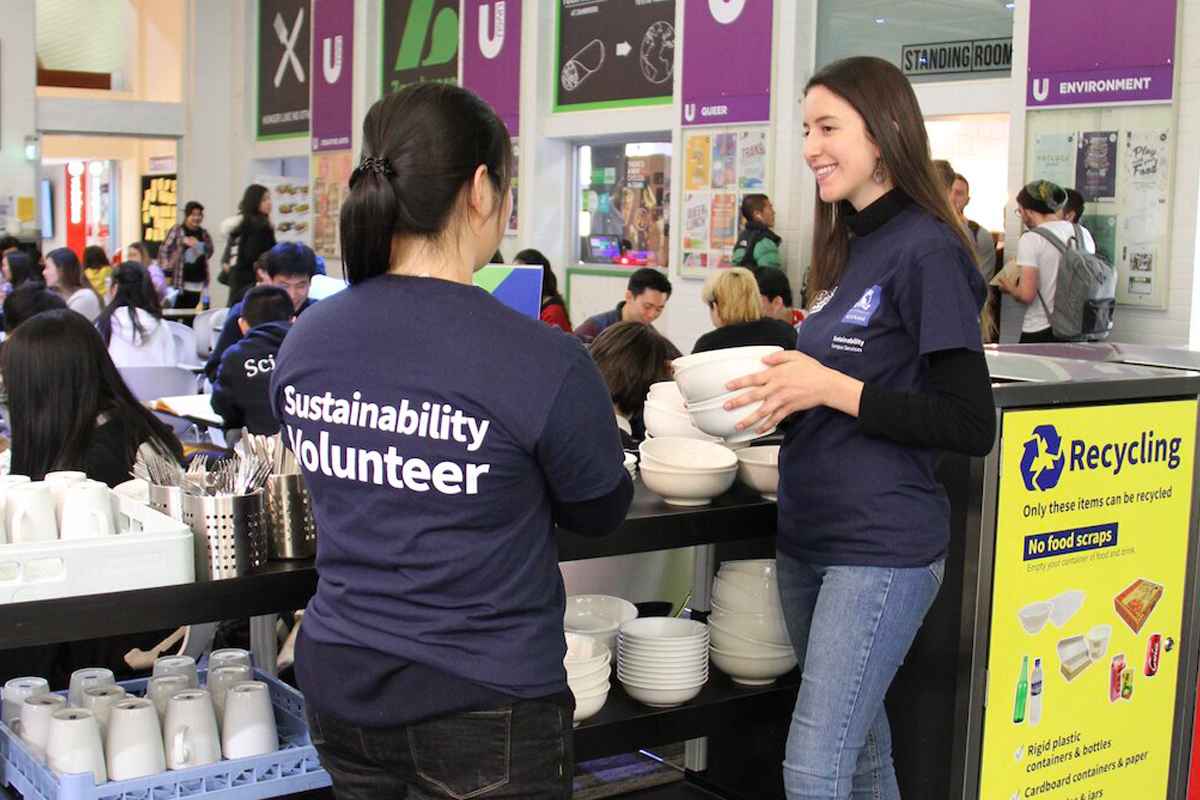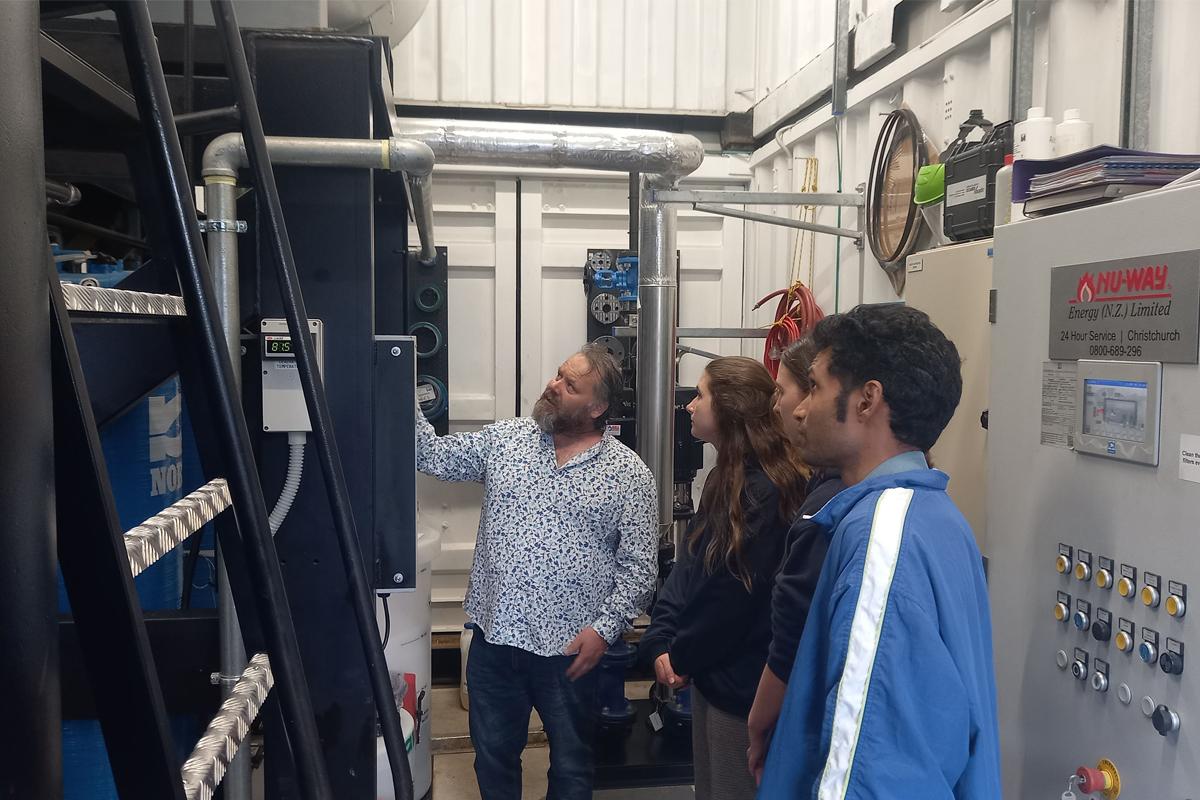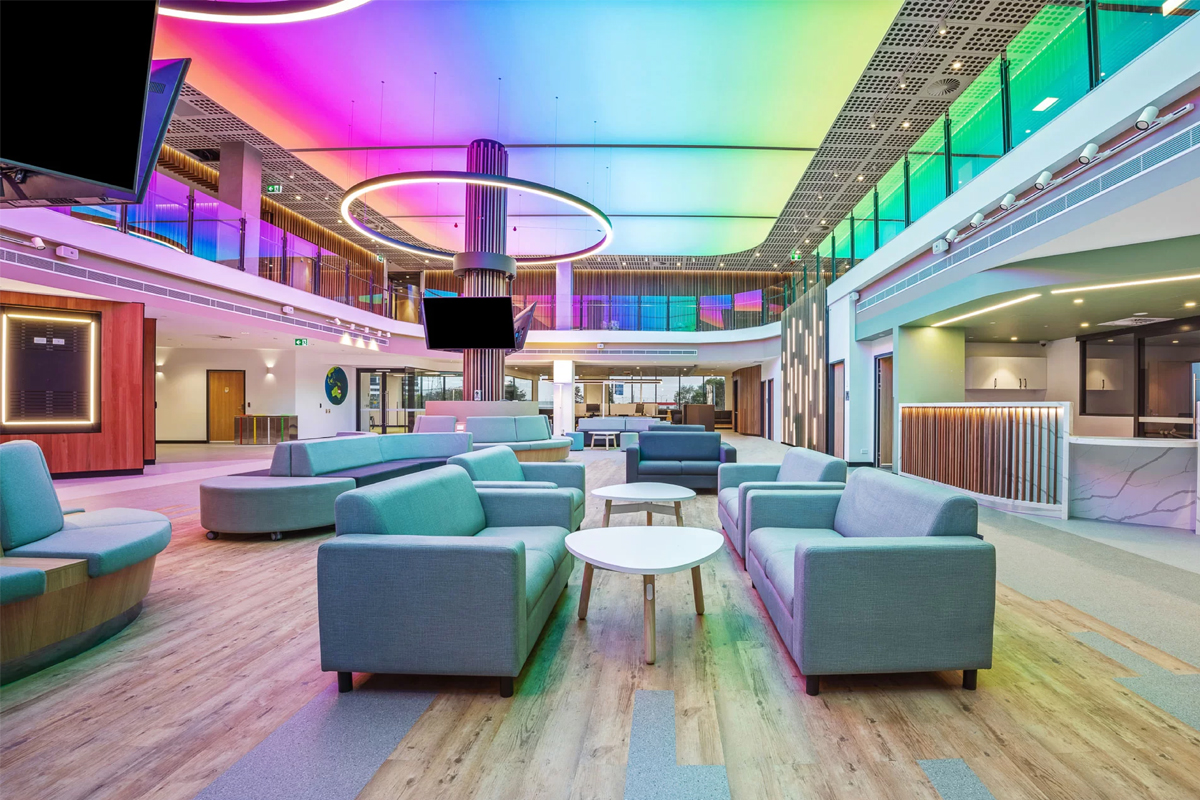Creating Impact/Winners category
Laboratories play a major role in scientific research and innovation, however their environmental impact is substantial. This demands improvement, particularly in higher education institutions where climate change and environmental degradation is a crucial concern for students and staff. Laboratories have a considerably higher environmental footprint compared to standard office spaces; consuming 10 times more energy and 4 times more water per square meter, on average. Life-sciences labs alone contribute approximately 5.5 million tonnes – or 2% – of the world’s plastic waste each year.
At UNSW, where there are over 1000 lab spaces spanning more than 75,000 square meters, the combined environmental impact of our laboratories is considerable. In a single year, the University consumed more than 85 million kilowatt-hours of electricity, with the energy demand of laboratories being a major contributor. In the same timeframe, the University generated around 2000 tonnes of laboratory waste. To address these concerns, it is imperative for higher education institutions like UNSW to prioritise sustainability and implement measures to reduce resource consumption, promote efficient lab practices, and adopt environmentally friendly product alternatives. After extensive trialling and comparison of various sustainability platforms, UNSW concluded that the Laboratory Efficiency Assessment Framework (LEAF) program had the most impressive cost-benefit ratio. For a relatively small investment of time and effort on behalf of each LEAF team and the University as a whole, there was potential for considerable improvements to laboratory sustainability.
LEAF is a comprehensive program developed by University College London in 2018. Since this time, it has gained significant popularity and is now utilised in 15 countries, by more than 95 institutions, making it one of the largest green lab accreditation systems worldwide.
UNSW is the first Australasian higher education institution to implement this program in its laboratories.
The UNSW LEAF program is centred around a digital platform that incorporates four main components:
- The framework: An online tool designed to assist users in implementing sustainability actions within their laboratories. It provides a structured approach to guide individuals through key sustainability and efficiency criteria. Users access the tool to assess their current sustainability practices and receive guidance on implementing improvements. There are a total of 48 criteria for teams to complete across the three accreditation levels (Bronze, Silver, Gold). Teams are also encouraged and rewarded for submitting novel sustainability actions unique to their lab; these are called ‘open initiatives’.
- Online calculators: LEAF offers online calculators that enable members to measure the financial and emissions impact of their laboratory operations. These calculators help users estimate the sustainability of their labs and track progress as they implement various initiatives and strategies. By quantifying the financial and environmental implications, labs can make accurate, data-driven decisions as well as identify opportunities for further improvements with minimal costs.
- Toolkits and resources: UNSW provide a range of resources and tools to support laboratories in their journey towards sustainability. These include UNSW-specific guides on sustainable lab practices, information on green equipment and consumables, induction and exit procedures, and other relevant resources. The toolkit equips lab personnel with the necessary knowledge and practical resources to implement sustainable practices effectively.
- Audits and accreditations: Individual LEAF teams incrementally progress through Bronze, Silver and Gold accreditation levels, based on their sustainability achievements. Each accreditation level requires teams to enact process improvements or operational changes based on specific criteria in that accreditation level. Teams are required to submit responses detailing how they meet necessary criteria, which is then reviewed by a UNSW LEAF administrator. Successful teams are recognised and rewarded for their efforts at UNSW’s annual LEAF award ceremony (see Image 2).
The UNSW LEAF program has achieved notable success since its implementation. In 2021, five laboratories within UNSW Science became the first in Australasia to receive LEAF accreditation. This initial success prompted a University-wide rollout of the LEAF program in 2022. During the rollout, 22 laboratory groups from various faculties, including Engineering, Science and Medicine & Health, as well as specialist centres like the Children’s Cancer Institute and the RNA Institute, joined the program. These diverse participants demonstrate the broad adoption and replicable nature of LEAF.
Currently, there are 45 teams registered in the program, actively working towards achieving sustainability goals. Among these teams, 19 have attained Bronze level accreditation, while 5 have reached Silver; recognising the teams’ commitment and achievements in reducing greenhouse gas emissions, water consumption, laboratory expenses, and single-use plastics usage.
The UNSW LEAF program continues to expand in 2023, with a focus on laboratory recruitment and growing the strength of our collaborative community. Furthermore, the UNSW LEAF program has set an ambitious target to support the first laboratory in Australia achieving Gold level accreditation. This goal highlights the program’s dedication to continuous improvement and its aspiration to be at the forefront of sustainable laboratory practices in the country.
LEAF showcases UNSW’s commitment to environmental responsibility and its proactive approach to promoting sustainable practices within its laboratories. Through the program’s grassroots focus and targeted engagement of laboratory groups, UNSW has made a significant impact on its environmental outcomes with relatively minimal investment of financial and staffing resources.
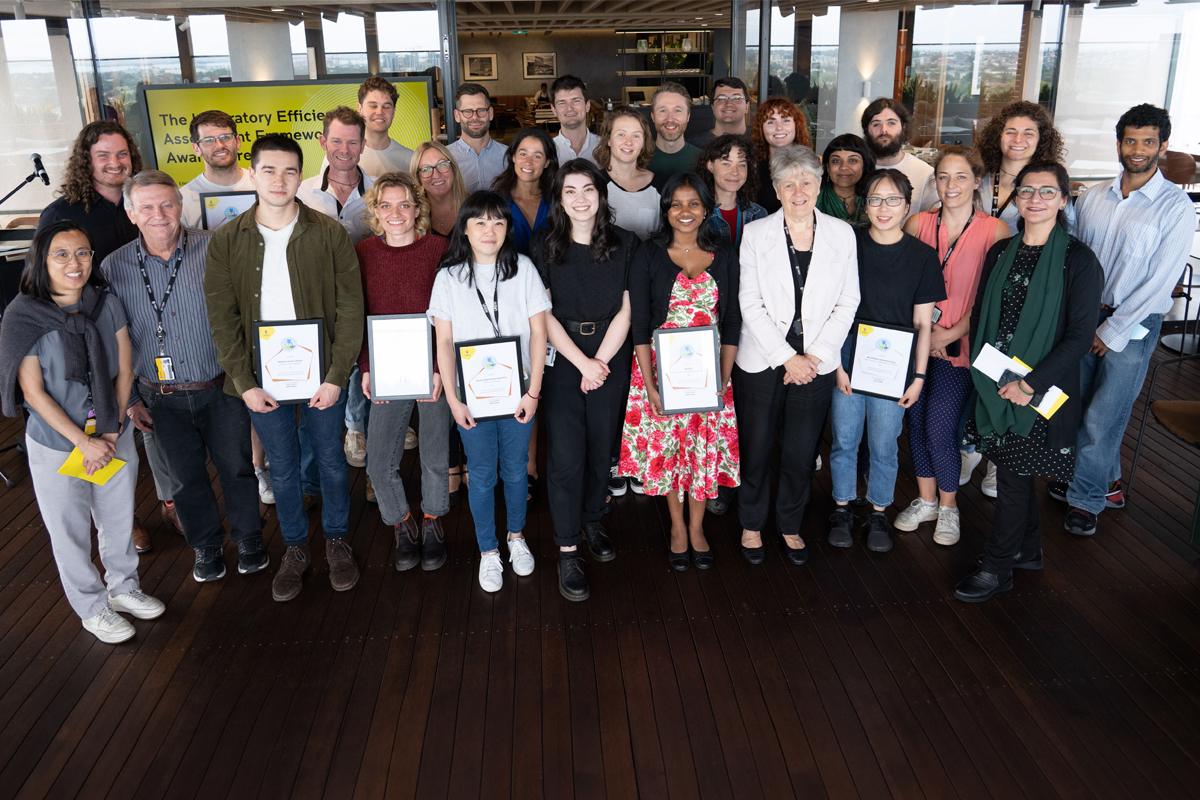
Environmental and social benefits
Operational benefits
- LEAF provides achievable strategies to reduce environmental impact and offers support for their implementation.
- Running LEAF in university laboratories creates a positive learning environment where students can develop an early understanding and appreciation for sustainable practices.
- Students gain valuable experience in working in labs that prioritise environmental impact, which can positively influence their future careers as sustainable researchers, scientists, and engineers.
- LEAF helps reduce organisational siloing by creating a community of sustainable lab practitioners.
Environmental/social benefits
- In 2021–22 the UNSW LEAF program achieved estimated reductions of 2,900 tonnes of CO2; the equivalent to taking ~1000 cars off the road.
- The program also led to reductions in water consumption, with approximately 450,000 litres of water saved in 2021–22.
- UNSW LEAF has also contributed to a significant reduction in waste, particularly single-use plastics.
- LEAF accredited laboratory users employ green chemistry principles that reduce the volume of hazardous chemicals entering our environment.
- Savings achieved by LEAF accredited laboratories have contributed to UNSW’s overall reduction of greenhouse gas emissions as seen in the UNSW Environmental Sustainability Report 2022.
Sector benefits
- The UNSW LEAF program demonstrates the potential for sustainable practices in laboratory settings; serving as an example for other institutions in the research and education sector.
- The program raises the profile of environmental sustainability within a sector that often considers sustainability a low priority or not possible. UNSW LEAF shows that meaningful and impactful research can be conducted while considering and improving your environmental impact.
- By promoting environmental sustainability, UNSW LEAF fosters the development of the next generation of researchers, scientists, and engineers to prioritize sustainability in their work.
- The program’s emphasis on reducing environmental impact aligns with broader societal and global goals of sustainability, especially regarding the United Nations 17 Sustainable Development Goals.
- Through an emphasis on sustainable procurement practices LEAF pressures industry manufacturers and supplier to invest in producing cleaner, greener alternative products.
Leadership and engagement
UNSW holds the distinction of being the first Australasian university to implement LEAF within its laboratories; demonstrating our leadership and dedication to sustainability, and distinguishing UNSW as a pioneer in the field.
By advocating for Australasian universities and institutions to adopt LEAF accreditations our proposal aims to create a community of sustainable lab practitioners all learning from one another. This collaborative approach fosters knowledge exchange, sharing of best practices, and collective efforts towards a more sustainable future.
Unlike other universities that rely on in-house or ad hoc solutions for lab sustainability, LEAF is a globally recognised framework. It has gained recognition and acceptance as an industry standard in some European countries. This positions UNSW to be directly involved in, and engage with, the global community of sustainability-focused laboratories and universities. It allows us to leverage international expertise, contribute to global sustainability discussions, and align our practices with the latest advancements in the field.
Significance to the sector
Our proposal stands out in several ways:
- Pioneering implementation: UNSW is the first Australasian university to adopt LEAF in its laboratories; demonstrating our leadership and commitment to sustainability in laboratory practices.
- Knowledge sharing: UNSW’s experience with implementing LEAF can serve as a valuable reference for other universities in Australasia who are interested in piloting the program. Our insights and lessons learned can help streamline their adoption process and avoid potential pitfalls. We have created LEAF resources and guides specifically tailored for Australian laboratories, and these materials are freely available through our LEAF website. This ensures universities and institutions benefit from our knowledge and can easily access the necessary information to implement LEAF.
- Cost-effectiveness: In comparison to the numerous benefits it brings, the financial and labour costs of running LEAF are minimal. This makes it an attractive and feasible option for universities and institutions looking to enhance their sustainability efforts without a substantial financial burden.
- Empowering individuals and community: By supporting individual lab users and universities to implement LEAF certifications, we foster a community of sustainable labs and individuals. This collaboration can further drive innovation, knowledge exchange, and collective efforts towards a more sustainable future.
- Effective response to COVID-19: Implementing LEAF has proven particularly successful in the wake of the COVID-19 pandemic and the subsequent lockdowns. LEAF provides a unique opportunity for laboratory users to reassess their existing processes and procedures in the name of sustainability and increased efficiency. We found that this was particularly successful post-pandemic as participants were primed and open to consider changing the way they work and how they connect with colleagues.
Wider societal impact
Our application holds significant societal impact and value, with the potential to drive positive change in several ways:
- Enhanced collaboration: LEAF promotes improved collaboration not only within the internal structure of UNSW but also at a national and international level. By adopting sustainable laboratory practices, we create a common ground for researchers and institutions to share knowledge, exchange best practices, and collaborate on sustainability-focused initiatives. This collaboration can lead to accelerated progress in addressing global challenges.
- Strengthened research community: Implementing LEAF fosters a sense of connection and unity within the research community. Researchers, technicians, and staff who actively participate in sustainable laboratory practices become part of a shared mission, working towards a common goal of creating a more sustainable world. This sense of community strengthens the industry as a whole, giving us more leverage and bargaining power when raising sustainability concerns with suppliers, manufacturers, funding bodies and governments.
- Focus on sustainability: Laboratories play a crucial role in scientific research and technological advancements. By integrating sustainability into laboratory practices, LEAF highlights the importance of sustainability from the ground up. This increased focus on sustainability within laboratories sends a powerful message that a sustainable world starts with responsible and eco-friendly practices in research settings. It instils a mindset of sustainability in future generations of scientists and engineers, contributing to the development of environmentally conscious solutions across various disciplines.
Learner/Graduate employer impact
LEAF offers significant impact and value to graduate employers, particularly those seeking candidates with sustainability experience and a demonstrated commitment to environmental responsibility, including:
- Tangible evidence of sustainability experience: Graduates from LEAF-accredited labs can provide employers with accessible evidence of their experience and expertise in working within an environment that prioritises sustainability. This evidence showcases their understanding of how their work impacts the world and their ability to contribute to sustainable practices in the workplace. Hiring graduates from LEAF-accredited labs demonstrates a shared commitment to environmental responsibility, signalling that the candidate is likely to be a strong fit for the employer’s sustainability initiatives and objectives.
- Up-to-date understanding of sustainability: LEAF accreditation indicates that graduates have received training in the latest understanding of sustainability within the research sector. This knowledge equips them with relevant and current insights into sustainable practices, enabling them to apply these principles in their new roles and contribute to sustainable outcomes.
- Ability to drive cultural and behavioural change: Graduates from LEAF-accredited labs have experience in driving cultural and behavioural change within their workplace. This skill set goes beyond sustainability-specific contexts and can be applied to various change-making functions within organizations. Employers can expect candidates who are proactive in influencing positive change, fostering a culture of sustainability and innovation.
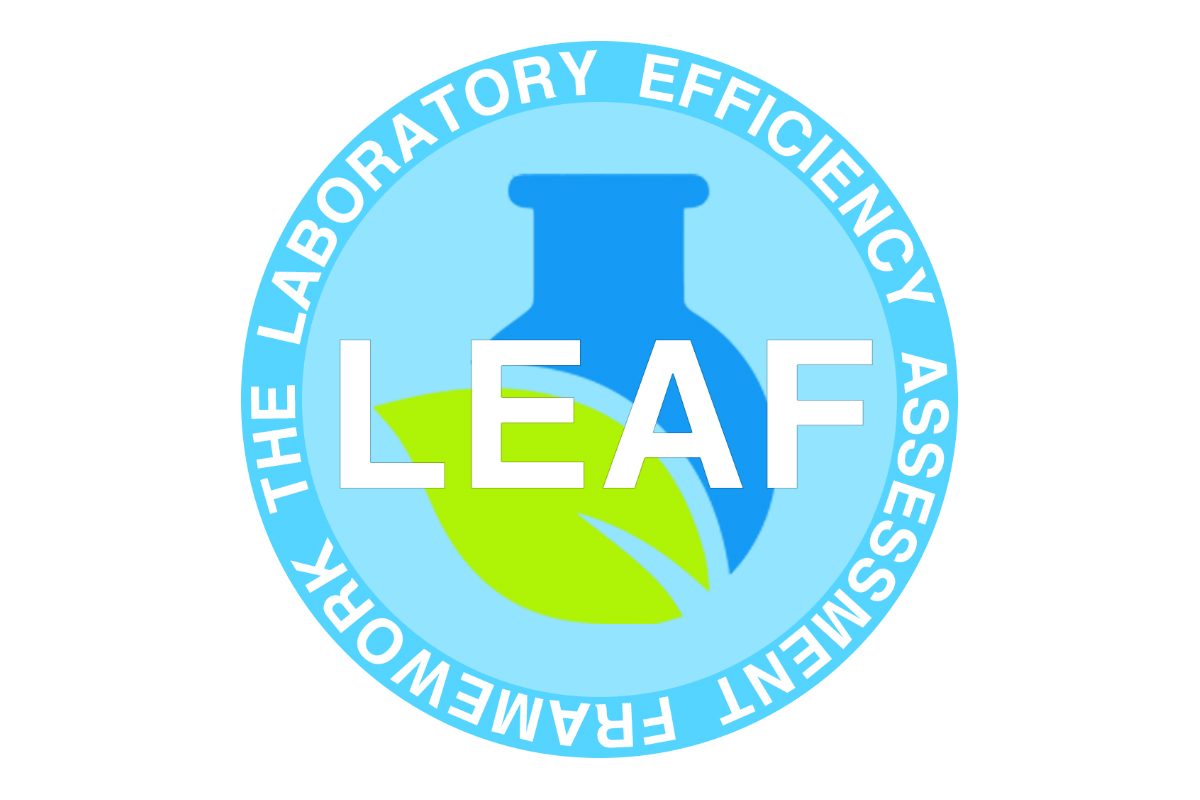
Top 3 learnings
Category finalists
Climate Action/Winners
Climate Action/Winners
Benefitting Society/Winners
Benefitting Society/Winners
Sustainability Champion – Student/Winners
Sustainability Champion – Student/Winners
Creating Impact/Winners
Creating Impact/Winners
Creating Impact/Winners
Creating Impact/Winners
Sustainability Champion – Student/Winners
Sustainability Champion – Student/Winners
Leading the Circular Economy/Winners
Leading the Circular Economy/Winners
Diversity, Equity & Inclusion in Sustainability/Winners
Diversity, Equity & Inclusion in Sustainability/Winners
Next Generation Learning & Skills/Winners
Next Generation Learning & Skills/Winners
Creating Impact
Creating Impact
Sustainability Institution of the Year/Winners
Sustainability Institution of the Year/Winners
Leading the Circular Economy/Winners
Leading the Circular Economy/Winners
Next Generation Learning & Skills/Winners
Next Generation Learning & Skills/Winners
Sustainability Champion – Staff/Winners
Sustainability Champion – Staff/Winners
Sustainability Champion – Student/Winners
Sustainability Champion – Student/Winners
Next Generation Learning & Skills/Winners
Next Generation Learning & Skills/Winners
Sustainability Champion – Staff/Winners
Sustainability Champion – Staff/Winners
Creating Impact
Creating Impact
Sustainability Champion – Staff/Winners
Sustainability Champion – Staff/Winners
Student Engagement/Winners
Student Engagement/Winners
Past winners
Benefitting Society/Winners
Benefitting Society/Winners
Diversity, Equity & Inclusion in Sustainability/Winners
Diversity, Equity & Inclusion in Sustainability/Winners
Climate Action/Winners
Climate Action/Winners
Sustainability Institution of the Year/Winners
Sustainability Institution of the Year/Winners
Creating Impact/Winners
Creating Impact/Winners
Creating Impact/Winners
Creating Impact/Winners
Top 3 learnings
Creating Impact/Winners category
Laboratories play a major role in scientific research and innovation, however their environmental impact is substantial. This demands improvement, particularly in higher education institutions where climate change and environmental degradation is a crucial concern for students and staff. Laboratories have a considerably higher environmental footprint compared to standard office spaces; consuming 10 times more energy and 4 times more water per square meter, on average. Life-sciences labs alone contribute approximately 5.5 million tonnes – or 2% – of the world’s plastic waste each year.
At UNSW, where there are over 1000 lab spaces spanning more than 75,000 square meters, the combined environmental impact of our laboratories is considerable. In a single year, the University consumed more than 85 million kilowatt-hours of electricity, with the energy demand of laboratories being a major contributor. In the same timeframe, the University generated around 2000 tonnes of laboratory waste. To address these concerns, it is imperative for higher education institutions like UNSW to prioritise sustainability and implement measures to reduce resource consumption, promote efficient lab practices, and adopt environmentally friendly product alternatives. After extensive trialling and comparison of various sustainability platforms, UNSW concluded that the Laboratory Efficiency Assessment Framework (LEAF) program had the most impressive cost-benefit ratio. For a relatively small investment of time and effort on behalf of each LEAF team and the University as a whole, there was potential for considerable improvements to laboratory sustainability.
LEAF is a comprehensive program developed by University College London in 2018. Since this time, it has gained significant popularity and is now utilised in 15 countries, by more than 95 institutions, making it one of the largest green lab accreditation systems worldwide.
UNSW is the first Australasian higher education institution to implement this program in its laboratories.
The UNSW LEAF program is centred around a digital platform that incorporates four main components:
- The framework: An online tool designed to assist users in implementing sustainability actions within their laboratories. It provides a structured approach to guide individuals through key sustainability and efficiency criteria. Users access the tool to assess their current sustainability practices and receive guidance on implementing improvements. There are a total of 48 criteria for teams to complete across the three accreditation levels (Bronze, Silver, Gold). Teams are also encouraged and rewarded for submitting novel sustainability actions unique to their lab; these are called ‘open initiatives’.
- Online calculators: LEAF offers online calculators that enable members to measure the financial and emissions impact of their laboratory operations. These calculators help users estimate the sustainability of their labs and track progress as they implement various initiatives and strategies. By quantifying the financial and environmental implications, labs can make accurate, data-driven decisions as well as identify opportunities for further improvements with minimal costs.
- Toolkits and resources: UNSW provide a range of resources and tools to support laboratories in their journey towards sustainability. These include UNSW-specific guides on sustainable lab practices, information on green equipment and consumables, induction and exit procedures, and other relevant resources. The toolkit equips lab personnel with the necessary knowledge and practical resources to implement sustainable practices effectively.
- Audits and accreditations: Individual LEAF teams incrementally progress through Bronze, Silver and Gold accreditation levels, based on their sustainability achievements. Each accreditation level requires teams to enact process improvements or operational changes based on specific criteria in that accreditation level. Teams are required to submit responses detailing how they meet necessary criteria, which is then reviewed by a UNSW LEAF administrator. Successful teams are recognised and rewarded for their efforts at UNSW’s annual LEAF award ceremony (see Image 2).
The UNSW LEAF program has achieved notable success since its implementation. In 2021, five laboratories within UNSW Science became the first in Australasia to receive LEAF accreditation. This initial success prompted a University-wide rollout of the LEAF program in 2022. During the rollout, 22 laboratory groups from various faculties, including Engineering, Science and Medicine & Health, as well as specialist centres like the Children’s Cancer Institute and the RNA Institute, joined the program. These diverse participants demonstrate the broad adoption and replicable nature of LEAF.
Currently, there are 45 teams registered in the program, actively working towards achieving sustainability goals. Among these teams, 19 have attained Bronze level accreditation, while 5 have reached Silver; recognising the teams’ commitment and achievements in reducing greenhouse gas emissions, water consumption, laboratory expenses, and single-use plastics usage.
The UNSW LEAF program continues to expand in 2023, with a focus on laboratory recruitment and growing the strength of our collaborative community. Furthermore, the UNSW LEAF program has set an ambitious target to support the first laboratory in Australia achieving Gold level accreditation. This goal highlights the program’s dedication to continuous improvement and its aspiration to be at the forefront of sustainable laboratory practices in the country.
LEAF showcases UNSW’s commitment to environmental responsibility and its proactive approach to promoting sustainable practices within its laboratories. Through the program’s grassroots focus and targeted engagement of laboratory groups, UNSW has made a significant impact on its environmental outcomes with relatively minimal investment of financial and staffing resources.

Environmental and social benefits
Operational benefits
- LEAF provides achievable strategies to reduce environmental impact and offers support for their implementation.
- Running LEAF in university laboratories creates a positive learning environment where students can develop an early understanding and appreciation for sustainable practices.
- Students gain valuable experience in working in labs that prioritise environmental impact, which can positively influence their future careers as sustainable researchers, scientists, and engineers.
- LEAF helps reduce organisational siloing by creating a community of sustainable lab practitioners.
Environmental/social benefits
- In 2021–22 the UNSW LEAF program achieved estimated reductions of 2,900 tonnes of CO2; the equivalent to taking ~1000 cars off the road.
- The program also led to reductions in water consumption, with approximately 450,000 litres of water saved in 2021–22.
- UNSW LEAF has also contributed to a significant reduction in waste, particularly single-use plastics.
- LEAF accredited laboratory users employ green chemistry principles that reduce the volume of hazardous chemicals entering our environment.
- Savings achieved by LEAF accredited laboratories have contributed to UNSW’s overall reduction of greenhouse gas emissions as seen in the UNSW Environmental Sustainability Report 2022.
Sector benefits
- The UNSW LEAF program demonstrates the potential for sustainable practices in laboratory settings; serving as an example for other institutions in the research and education sector.
- The program raises the profile of environmental sustainability within a sector that often considers sustainability a low priority or not possible. UNSW LEAF shows that meaningful and impactful research can be conducted while considering and improving your environmental impact.
- By promoting environmental sustainability, UNSW LEAF fosters the development of the next generation of researchers, scientists, and engineers to prioritize sustainability in their work.
- The program’s emphasis on reducing environmental impact aligns with broader societal and global goals of sustainability, especially regarding the United Nations 17 Sustainable Development Goals.
- Through an emphasis on sustainable procurement practices LEAF pressures industry manufacturers and supplier to invest in producing cleaner, greener alternative products.
Leadership and engagement
UNSW holds the distinction of being the first Australasian university to implement LEAF within its laboratories; demonstrating our leadership and dedication to sustainability, and distinguishing UNSW as a pioneer in the field.
By advocating for Australasian universities and institutions to adopt LEAF accreditations our proposal aims to create a community of sustainable lab practitioners all learning from one another. This collaborative approach fosters knowledge exchange, sharing of best practices, and collective efforts towards a more sustainable future.
Unlike other universities that rely on in-house or ad hoc solutions for lab sustainability, LEAF is a globally recognised framework. It has gained recognition and acceptance as an industry standard in some European countries. This positions UNSW to be directly involved in, and engage with, the global community of sustainability-focused laboratories and universities. It allows us to leverage international expertise, contribute to global sustainability discussions, and align our practices with the latest advancements in the field.
Significance to the sector
Our proposal stands out in several ways:
- Pioneering implementation: UNSW is the first Australasian university to adopt LEAF in its laboratories; demonstrating our leadership and commitment to sustainability in laboratory practices.
- Knowledge sharing: UNSW’s experience with implementing LEAF can serve as a valuable reference for other universities in Australasia who are interested in piloting the program. Our insights and lessons learned can help streamline their adoption process and avoid potential pitfalls. We have created LEAF resources and guides specifically tailored for Australian laboratories, and these materials are freely available through our LEAF website. This ensures universities and institutions benefit from our knowledge and can easily access the necessary information to implement LEAF.
- Cost-effectiveness: In comparison to the numerous benefits it brings, the financial and labour costs of running LEAF are minimal. This makes it an attractive and feasible option for universities and institutions looking to enhance their sustainability efforts without a substantial financial burden.
- Empowering individuals and community: By supporting individual lab users and universities to implement LEAF certifications, we foster a community of sustainable labs and individuals. This collaboration can further drive innovation, knowledge exchange, and collective efforts towards a more sustainable future.
- Effective response to COVID-19: Implementing LEAF has proven particularly successful in the wake of the COVID-19 pandemic and the subsequent lockdowns. LEAF provides a unique opportunity for laboratory users to reassess their existing processes and procedures in the name of sustainability and increased efficiency. We found that this was particularly successful post-pandemic as participants were primed and open to consider changing the way they work and how they connect with colleagues.
Wider societal impact
Our application holds significant societal impact and value, with the potential to drive positive change in several ways:
- Enhanced collaboration: LEAF promotes improved collaboration not only within the internal structure of UNSW but also at a national and international level. By adopting sustainable laboratory practices, we create a common ground for researchers and institutions to share knowledge, exchange best practices, and collaborate on sustainability-focused initiatives. This collaboration can lead to accelerated progress in addressing global challenges.
- Strengthened research community: Implementing LEAF fosters a sense of connection and unity within the research community. Researchers, technicians, and staff who actively participate in sustainable laboratory practices become part of a shared mission, working towards a common goal of creating a more sustainable world. This sense of community strengthens the industry as a whole, giving us more leverage and bargaining power when raising sustainability concerns with suppliers, manufacturers, funding bodies and governments.
- Focus on sustainability: Laboratories play a crucial role in scientific research and technological advancements. By integrating sustainability into laboratory practices, LEAF highlights the importance of sustainability from the ground up. This increased focus on sustainability within laboratories sends a powerful message that a sustainable world starts with responsible and eco-friendly practices in research settings. It instils a mindset of sustainability in future generations of scientists and engineers, contributing to the development of environmentally conscious solutions across various disciplines.
Learner/Graduate employer impact
LEAF offers significant impact and value to graduate employers, particularly those seeking candidates with sustainability experience and a demonstrated commitment to environmental responsibility, including:
- Tangible evidence of sustainability experience: Graduates from LEAF-accredited labs can provide employers with accessible evidence of their experience and expertise in working within an environment that prioritises sustainability. This evidence showcases their understanding of how their work impacts the world and their ability to contribute to sustainable practices in the workplace. Hiring graduates from LEAF-accredited labs demonstrates a shared commitment to environmental responsibility, signalling that the candidate is likely to be a strong fit for the employer’s sustainability initiatives and objectives.
- Up-to-date understanding of sustainability: LEAF accreditation indicates that graduates have received training in the latest understanding of sustainability within the research sector. This knowledge equips them with relevant and current insights into sustainable practices, enabling them to apply these principles in their new roles and contribute to sustainable outcomes.
- Ability to drive cultural and behavioural change: Graduates from LEAF-accredited labs have experience in driving cultural and behavioural change within their workplace. This skill set goes beyond sustainability-specific contexts and can be applied to various change-making functions within organizations. Employers can expect candidates who are proactive in influencing positive change, fostering a culture of sustainability and innovation.

Related finalists
Climate Action/Winners
Climate Action/Winners
Benefitting Society/Winners
Benefitting Society/Winners
Sustainability Champion – Student/Winners
Sustainability Champion – Student/Winners
Creating Impact/Winners
Creating Impact/Winners
Creating Impact/Winners
Creating Impact/Winners
Sustainability Champion – Student/Winners
Sustainability Champion – Student/Winners
Leading the Circular Economy/Winners
Leading the Circular Economy/Winners
Diversity, Equity & Inclusion in Sustainability/Winners
Diversity, Equity & Inclusion in Sustainability/Winners
Next Generation Learning & Skills/Winners
Next Generation Learning & Skills/Winners
Creating Impact
Creating Impact
Sustainability Institution of the Year/Winners
Sustainability Institution of the Year/Winners
Leading the Circular Economy/Winners
Leading the Circular Economy/Winners
Next Generation Learning & Skills/Winners
Next Generation Learning & Skills/Winners
Sustainability Champion – Staff/Winners
Sustainability Champion – Staff/Winners
Sustainability Champion – Student/Winners
Sustainability Champion – Student/Winners
Next Generation Learning & Skills/Winners
Next Generation Learning & Skills/Winners
Sustainability Champion – Staff/Winners
Sustainability Champion – Staff/Winners
Creating Impact
Creating Impact
Sustainability Champion – Staff/Winners
Sustainability Champion – Staff/Winners
Student Engagement/Winners
Student Engagement/Winners
Other finalists
Climate Action

Driving Towards Tomorrow’s Campus with Vehicle-to-Grid EV Technology
As part of Flinders University’s drive to innovate and become a leader in climate action, the University launched its Vehicle-to-Grid (V2G) initiative. This involved installing and maintaining 20x V2G and smart chargers for its growing electric vehicle fleet. Leveraging 100% renewable energy generated by ENGIE’s Willogoleche Wind Farm and Flinders University’s solar power systems, this enables the storage of renewable energy in EV batteries to be discharged on campus during peak demand periods. Hence, allows for these EV fleets to operate as a Virtual Power Plant (VPP) to deliver peak demand management and optimization of behind-the-meter generation.
Overall, this initiative demonstrates the reliability and scalability of bi-directional and uni-directional smart-charging systems for EVs in reducing GHG emissions while facilitating teaching, research, and innovation opportunities. Moreover, it exemplifies a sustainable and innovative solution to scale energy storage technology and increase renewables.
Sustainability Champion – Staff/Winners

Brandan Espe
Environmental Officer / Acting Grounds Supervisor
Brandan has brought over 50 federally listed Endangered species of plant into the James Cook University living collection, many of which have never been cultivated and are found in no other collection in the world.
Of these, over half have been sustainably wild collected, inclusive of field and clone data, so they can be used for ongoing conservation, research and teaching, the remaining being sourced from private and partner organisations through favours of service or trades.
He personally funded the project from 2019-2022, until funding was awarded for the program due to its success, with the program now being engrained into the Universities landscapes for ongoing management should he leave JCU, creating a threatened species legacy collection.
The program has now expanded beyond this, with an additional 48 species now funded for further addition, some of which are only known from less than 5 sightings in history.
Student Engagement

Sustainability Leaders creating real impact!
La Trobe created a unique Sustainability Leaders volunteering program to increase engagement with students on campus and empower them to act against waste and promote sustainability. It included the following initiatives:
- Promoting the reusable crockery implementation,
- Increasing knowledge action of other students on campus to diversion comingled recycling and organic waste from landfill.
- Focus on waste audits and data,
- Improved signage through new waste posters for students living on campus.
- Collaboration with Cirka (our cleaning and waste partner) to create a waste wall and;
- Learning all things sustainability (net zero, biodiversity, waste, reusables, engagement)
These initiatives yielded significant results and with a reduction in waste contamination by almost 40% at the residential buildings and engagement with over 80 groups of people for the Reusable Revolution.
Creating Impact

Where knowledge meets habits: Empowering students for a sustainable tomorrow
Our online Sustainability Challenges offer participants an engaging, self-paced learning experience centered around a specific United Nations Sustainable Development Goal (UNSDG). Requiring minimal resourcing and at zero-cost to participants, we’ve created replicable, compact, scalable, and impactful learning opportunities that result in real impact.
The Challenges follow a structured process that moves participants from knowledge gain to simple action to celebration, to establish small but mighty habits relating to waste and carbon emissions. This approach recognises that knowledge alone is often insufficient to drive behaviour change, and that ease of action and celebration are crucial components in creating sustainable habits.
Sustainability Champion – Staff/Winners

Catherine (CeeJay) Donovan
Veterinary nurse – Anaesthesia
From establishing the Massey Vet School Green Team to leading impactful initiatives, my commitment to environmental sustainability has been making waves. With the help of my team, I have accomplished numerous small, yet meaningful actions, including integrating a sustainability lecture for final year vet students and implementing battery recycling alongside rechargeable battery use. Our larger projects encompass the introduction of green waste and soft plastics recycling bins, an energy audit resulting in power-saving measures, and playing a part in a successful rubbish audit. I spearheaded the ‘6 in 6’ campaign, empowering individuals with six simple steps for workplace sustainability. Through the SustainaVet social media pages I help to educate and inspire peers nationwide. As the Massey School of Veterinary Science sustainability champion, I had the privilege of speaking at the annual veterinary conference on sustainability in clinical practice. Currently I’m conducting pioneering research on responsible cat waste disposal. Together, we’re forging a greener future, one initiative at a time.
Sustainability Champion – Student

Louis Walmsley
SDG Coordinator Monash Association of Sustainability, Office Bearer Monash Student Association’s Environmental and Social Justice Department, Masters of Environment and Sustainability Student
Louis is an exceptional student sustainability leader at Monash University. His passion and dedication to sustainability have made a significant impact on the community. Louis’s values revolve around sustainability, which is evident upon meeting him. He actively participates in various sustainability groups, demonstrating his commitment to creating a more environmentally conscious society.
One of Louis’s notable involvements is with Precious Plastic Monash, where he organizes remarkable events and fosters collaboration among like-minded individuals, student groups, and staff. His contributions to the Monash Association of Sustainability have allowed him to conduct valuable research on plastic usage and climate action, resulting in positive changes within the university.
Through his work with the Monash Student Association, Louis has engaged hundreds of students in fun and interactive sustainability initiatives. He took the initiative to organize a sustainability food fair, which was one of the largest sustainability-related events held at Monash post-COVID. This accomplishment is a true testament to Louis’s hard work and creativity.
Louis is an outstanding student leader whose efforts in sustainability have had a lasting impact on Monash University and its community. His inspiring nature resonates with everyone who knows him.

